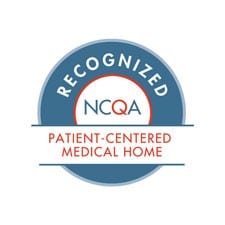In recognition of Hunger & Homelessness Awareness Week Nov. 12 – 20,
UT Physicians is casting a spotlight on the critical roles of community health workers and patient-centered medical homes (PCMH) in the lives of patients.
Whole-person care
“Each team member is critical in ensuring our patients’ needs are met,” said Monique Johnson, community health worker supervisor for UT Physicians. “They provide an extraordinary level of care by finding additional resources and accessible services that our patients can utilize.”
PCMH clinics have coordinated care teams that are familiar with federal, state, and local resources that can help patients with more than just medical needs. At times, doctors discover that patients are struggling to pay for nutritious food or paying rent.
“Many patients are reluctant to ask for help or may not know how to ask for help,” explains Veronica Martinez, community health worker supervisor with UT Physicians. “But, we introduce them to the concept of a PCMH clinic and that we are here to support them.”
Community health workers utilize nonprofits and other assistance programs to connect patients to help.
“When patients had difficulty finding diapers or baby formula, our teams went to work to help locate where these resources could be found,” Johnson said.
Community health workers like Brenda Benavidez, who work at the UT Physicians Multispecialty – International District clinic act as a guide to help patients overcome many barriers they may face, such as transportation, language, paperwork, etc.
She works with supporting organizations to ensure the information relayed to the patient is as accurate as possible, such as prerequisites, hours of operation, and availability.
“During a previsit call with patients, I approach them with respect and let them know I am here to help,” Benavidez said. “We truly care about their well-being and experience joy and relief if they are able to find assistance.”
As a PCMH clinic, staff ask patients questions around their conditions, symptoms, treatments, and their overall well-being. Their responses can help providers identify if patients are having difficulty adhering to established treatment plans, experiencing depression, financial strain, food insecurity, or needing prescription assistance or special transportation.
“Our goal is to let patients know that they have someone to speak on their behalf and help contribute to their overall health and wellness,” Johnson said.
- UT Physicians Multispecialty – Victory
- UT Physicians Family Practice – Bayshore
- UT Physicians Multispecialty – Jensen
- UT Physicians Pediatric Primary Care – Texas Medical Center
- UT Physicians Multispecialty – Rosenberg
- UT Physicians Multispecialty – International District
- UT Physicians Multispecialty – Sienna
- UT Physicians Comprehensive Sickle Cell Center




